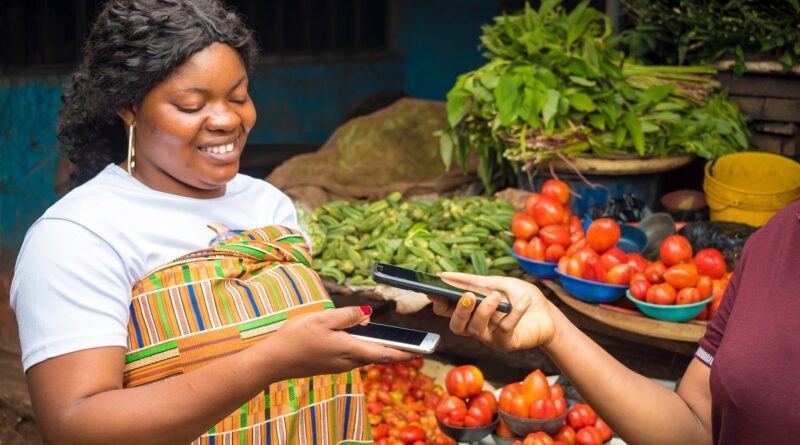Revolutionizing African Finance: The Role of Blockchain in Promoting Financial Inclusion
The potential of blockchain technology to foster financial inclusion in Africa has long been a topic of intrigue among economists and technology enthusiasts alike. This technology, once known solely for its association with cryptocurrencies like Bitcoin, has emerged as a pivotal player in revolutionizing financial systems worldwide.
With over 66% of the population unbanked, Africa offers a vast market for financial services that could significantly improve quality of life and economic potential for millions. Can blockchain hold the key to unlocking this untapped potential?
I. Unleashing Blockchain’s Potential
A. Understanding the Basics
In simple terms, a blockchain is a type of database that records information across multiple systems in a way that is secure, transparent, and immutable. These inherent qualities make blockchain technology a promising tool for improving financial inclusion in regions where traditional banking services are scarce or inaccessible.
World Economic Forum recognizes blockchain technology as one of the digital revolutions fostering financial inclusion worldwide.
B. Beyond Cryptocurrencies
In Africa, blockchain has ventured beyond cryptocurrencies, with solutions such as remittances, lending, insurance, and identity verification taking center stage. For instance, BitPesa, a blockchain-based remittance service, allows for cheaper and faster cross-border transactions, catering to both businesses and individuals in East Africa. Such innovations are reducing remittance costs by up to 75% compared to traditional methods.
II. Blockchain Driving Financial Inclusion
A. Enabling Seamless Cross-Border Transactions
Africa’s remittance market, worth over $40 billion in 2020, is a primary area where blockchain can foster financial inclusion. By facilitating swift, low-cost cross-border transactions, blockchain-based solutions like BitPesa and SureRemit are making remittances more accessible to the masses.
B. Facilitating Access to Credit
In Africa, access to credit is often hindered by a lack of formal credit history. Blockchain technology, through decentralized finance (DeFi) platforms, is pioneering innovative ways to assess creditworthiness. Platforms such as Kora[1] leverage blockchain to provide unbanked farmers in Nigeria access to credit, thereby contributing to improved livelihoods and increased financial participation.
C. Ensuring Transparent and Secure Transactions
Blockchain’s inherent transparency and immutability offer a shield against fraud and corruption – two prevalent challenges in the African financial sector. Companies like Circulor use blockchain to ensure transparency in the supply chain, thereby promoting ethical business practices and building trust with consumers.
III. Challenges and the Way Forward
While the potential is vast, the implementation of blockchain in Africa also faces substantial hurdles. Limited technical knowledge, regulatory concerns, and infrastructural deficiencies are among the key barriers to adoption.
The need for collaboration between governments, private sector, and international organizations is therefore crucial to navigate these challenges.
Conclusion
The potential of blockchain to drive financial inclusion in Africa is evident. However, this transformative technology is still in its nascent stage in the continent, and the path to widespread adoption is fraught with challenges.
FAQs
Yo! Africa’s traditional banking infrastructure has its gaps, mate. Blockchain fills these, offering cheaper, faster, and more inclusive financial solutions. Plus, decentralization is a game-changer!
Well, my friend, think of blockchain as the ultimate ‘bank for the unbanked’. No need for brick-and-mortar institutions! Crypto wallets and mobile apps? That’s where it’s at!
You bet! P2P trading volumes are mooning! With high remittance fees and local currency volatility, many turn to cryptos for stability and lower fees.
Bitcoin’s the OG, always making waves. But don’t sleep on USDT and other stablecoins, especially for remittances and daily transactions. They’re gaining solid traction.
They can be, but here’s the 411: Layer-2 solutions and other blockchain platforms, like BSC and TRON, offer lower transaction fees. Plus, many African-focused projects are optimizing for affordability.
It’s a mixed bag, buddy. Some nations, like Nigeria, have had regulatory hiccups, while others, like Rwanda, are embracing the tech. But the space is evolving rapidly!
Look, trust is earned in the crypto world. While blockchain’s transparent and immutable, always DYOR (Do Your Own Research) before diving deep.
Oh, for sure! Like anywhere else, there are bad actors. Remember: if it sounds too good to be true, it probably is. Always double-check and never share your private keys!
Jump in! Set up a digital wallet, buy some crypto, and you’re rolling. Local exchanges and P2P platforms are your best bets to get started.
Nah, the beauty is in their simplicity! With user-friendly apps and growing community support, even your grandma could start trading satoshis!
Tough call! While blockchain’s making waves, traditional banking isn’t drowning just yet. Think of them more as allies, each with their strengths.
Bullish, my friend! With a young population, tech adoption, and the need for financial inclusion, the sky’s the limit for Africa’s crypto journey!

